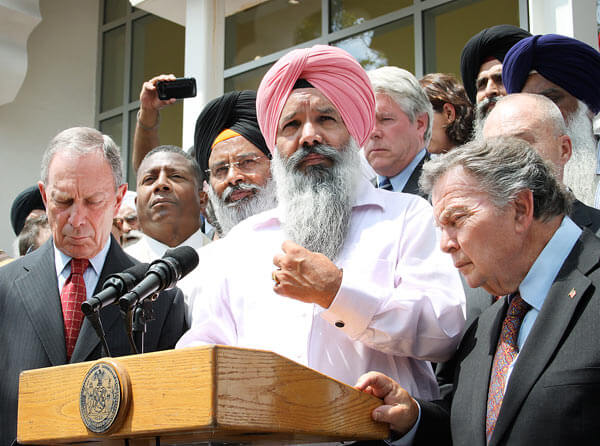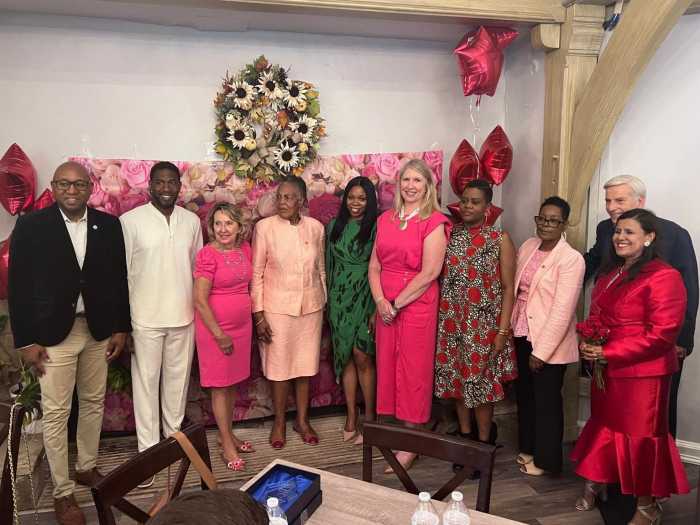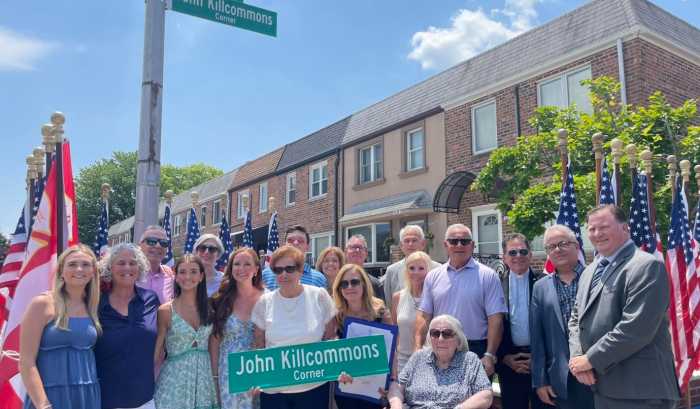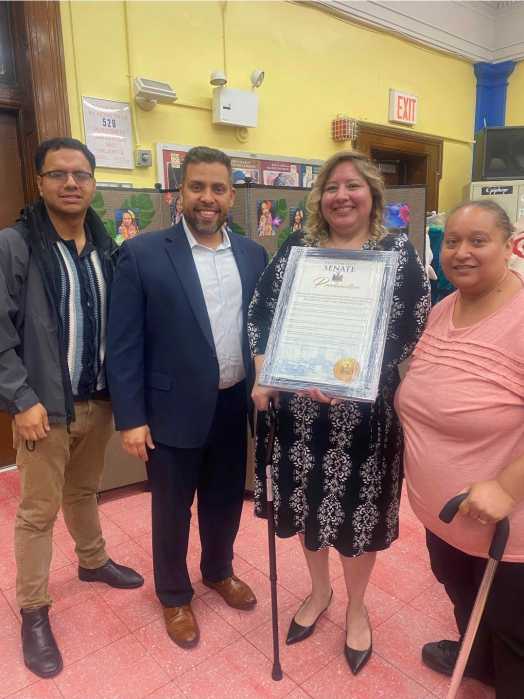By Karen Frantz
Mayor Michael Bloomberg assured the Sikh community in Queens Monday that the city would protect them after a deadly shooting at a Sikh temple in Oak Creek, Wis., killed six worshipers.
“No matter who you are, no matter where you’re from, no matter what religion you profess, you have a right to be safe in your homes, in your places of worship and on the streets of New York City,” Bloomberg said at the Sikh Cultural Society in Richmond Hill, where he and Police Commissioner Ray Kelly met with leaders of the Sikh community. “We have no intolerance for lawless violence.”
Several other elected officials also spoke out or issued statements condemning the shooting and offering condolences to the Sikh community.
Sikhs in Queens reacted with shock and mourning in the wake of Sunday’s mass shooting, which killed the uncle of a leader of the Sikh Cultural Society, the largest Sikh temple in New York.
“Nobody has the right to take away somebody’s life,” said Harpreet Singh Toor, a spokesman at the society, at 94-08 118th St.
“We condemn any kind of violence against our fellow human beings,” he said, also speaking out against the shooting massacre at a movie theater in Aurora, Colo., just two weeks ago.
Mohan Singh Khatra, chairman of the Sikh Cultural Society, whose uncle, Suvez Khatra, was killed in the rampage, said he last spoke with his relative by telephone on the day he died about future plans to visit him in Wisconsin.
“I feel really bad because we never can see him again,” said Khatra.
His voice also broke when talking about a police officer originally from Brooklyn who was among those shot and was in critical condition.
Others in the Sikh community said they were heartbroken at violence against what they said was a peaceful and harmonious culture. The Sikhs’ homeland is in the Punjab region straddling India and Pakistan.
The NYPD has ramped up security at Sikh temples throughout the city, although Kelly said there had been no specific threats made against the community.
Queens has one of the largest Sikh populations in the world, with about 15,000 individuals living in Richmond Hill and the surrounding neighborhoods.
He said the NYPD is also in communication with the FBI to learn of any direct threats to Sikhs here.
Some in the community were nervous after the Wisconsin shooting, with one man, Anshdeep Singh, saying he spoke with some parents who were reluctant to send their kids to a summer camp that is being organized.
Singh, who teaches martial arts at the center, said he was not worried about his own safety, but he was fearful for his community, saying that bias against Sikhs had increased since Sept. 11, 2001.
“We’ve been targeted because of our distinct appearances,” he said.
Sikh men wear turbans and grow their beards long similar to many Muslims, although they belong to separate religions.
He said he has felt discriminated against in school and in his workplace, and that he was not alone in feeling that way.
“Our community has been through a lot,” he said.
Supreet Kaur, who works with the Sikh Coalition, the country’s largest Sikh civil rights organization, echoed the sentiment, saying the organization has documented 900 acts of bias and discrimination against Sikhs in New York since 9/11.
“This bias has invaded all aspects of our lives,” she said, saying it includes hate crimes, bullying in schools and corporate profiling.
She said the way to end violence against Sikhs and other minority groups is to take a hard look at why discrimination exists against minorities in the first place.
She said there is a need for interfaith dialogue and greater understanding of different cultures in order to “recognize that we have so much in common, that we are all Americans.”
Reach reporter Karen Frantz by e-mail at kfrantz@cnglocal.com or by phone at 718-260-4538.








































